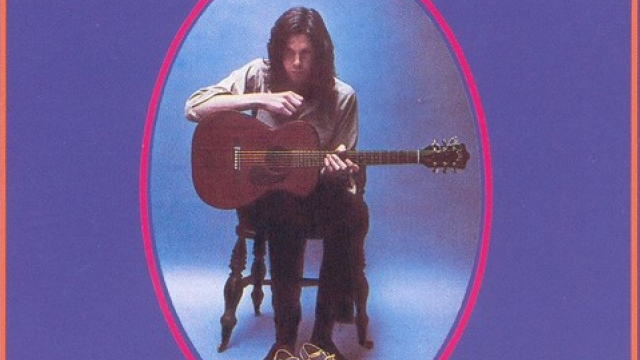This review is incomplete, and will be finished with descriptions of each individual track tomorrow.
Despite Five Leaves Left’s unbelievable quality, all that excellence at the time amounted to nothing if no-one heard the album. And hardly any one did. This was in many respects both sides of the musical divide’s fault; the record company released the album with terrible, falsely detailed packaging, and Nick Drake’s first tours in attempt at promotion were by all accounts disasters. But then that maybe that is to be expected with someone struggling with an ever worsening depression, and music that required him to spend many wordless minutes retuning guitars.
In spite of all that, thanks to probably the nicest music producer who ever lived (we’ve heard lots of the opposite account) and a desire to instantly return to the studio, a year later we had Bryter Layter. This was an attempt to be, in respects, a more commercial album, with many of the songs and session musicians being picked to fit the zeitgeist of folk and baroque at the time, such as yet more members of the Fairpoint Convention. It also contains the workings of John Cale, a man who had seen the struggles of trying to find a larger audience infusing rock with an artier edge in his now pretty famous band The Velvet Underground (who I have on list as a definite for the Club, soon).
Bryter Layter is a great but confusing beast for myself. On many of a level, this is Nick Drake’s best album. Genre wise folk is only one singular component; there is baroque pop, art pop, jazz, gospel, classical and jazz all over this album, this showing the greatest array of styles in his trio of records. Also, whilst the individual song writing was always great from the accent, this is the most cohesive single album, one that follows what could be called an aesthetic narrative, to the point of including introductions without Drake or his guitar much. It’s very impressive. Almost too impressive, and that aforementioned lack of Drake on occasion is why I would call this my least favourite of the three.
But really that’s only in comparison to himself, which still makes it absolutely remarkable and moving. Any negatives I have from a more objective standpoint is with the production, where some of the reed instruments do border on the muzak side on occasion. But that is also something a remaster along the road could fix, because otherwise this again is a fantastic collection of songs, exemplifying Nick Drake’s compositional skills even more than his rightful guitar god status. It’s also brighter than almost anything on the other two records, albeit a brightness that is still full of anxiety and a sense of suspicion towards the urban life.
[Individual tracks coming soon]

